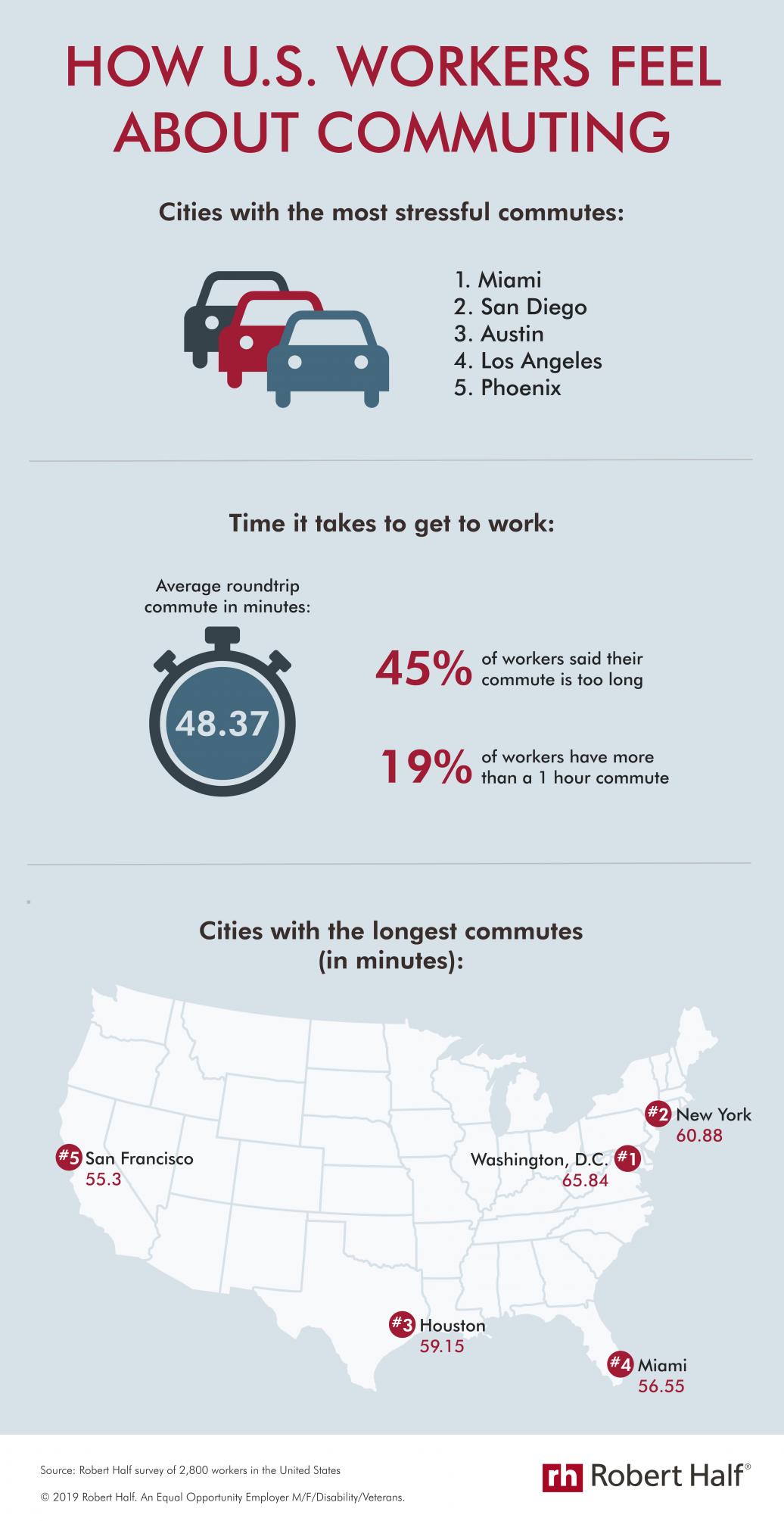The effects of the workplace on employee stress have been well documented. Aside from making life very difficult for employees, such stress is estimated to cost U.S. industries up to $300 billion every year. There might be a source of stress you haven’t considered—one that stresses half of all employees from the moment they leave their homes to the moment they arrive at work: their commute.
 A recent study from Robert Half shows that 50% of workers report that their commute is stressful. An additional 45% say that their commute is too long. That is 15 points higher than a similar survey given just 2 years ago. On average, respondents reported their commute time to be almost 50 minutes. What this survey shows is that whatever steps you have taken to mitigate stress during the workday might be bypassed by the stress that occurs on the way to work.
A recent study from Robert Half shows that 50% of workers report that their commute is stressful. An additional 45% say that their commute is too long. That is 15 points higher than a similar survey given just 2 years ago. On average, respondents reported their commute time to be almost 50 minutes. What this survey shows is that whatever steps you have taken to mitigate stress during the workday might be bypassed by the stress that occurs on the way to work.
More Findings
- Among the 28 U.S. cities in the survey, respondents in Miami, San Diego, and Austin are the most stressed about their trip to and from the office.
- Men and workers aged 25 to 40 have the highest levels of stress about traveling to work.
- Los Angeles (65%), Austin (62%), and Miami (62%) have the most professionals who feel their commute is too long.
- More workers aged 25 to 40 (54%) and men (52%) described their trips as too lengthy.
- Washington, D.C. (65.84 minutes); New York (60.80 minutes); and Houston (59.15 minutes) professionals reported the longest travel times.
- In a separate survey, senior managers said their company offers flexible scheduling to avoid peak traffic times (43%) and telecommuting (40%) to help alleviate employees’ stressful trips.
What Can We Do?
Employers might feel as though they don’t have much to offer when it comes to alleviating commuting stress, but here are a few things you can do to make your employees a little less stressed and, therefore, a little more productive:
- Offer more telecommuting options. Perhaps a day or 2 at home each week could mitigate the commuting stress.
- Offer flexible scheduling. Flexible work arrangements can mean workers have the option to avoid high-traffic times, reducing overall travel time and stress.
- Explore other travel options like employer-sponsored carpooling, public transportation, and benefits surrounding parking and fuel costs.
We are also including an infographic made by Robert Half covering the results:

